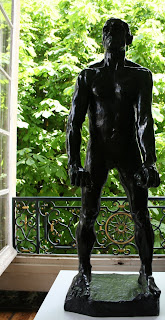
 As the airborne seeds dance in the wind like tiny glowing fairies, I sit in the ruined kells priory. We ambled along Irish countryside to get to kells from kilkenny. We hitchhiked, picked up by the sweetest old lady whose car was overflowing with fresh flowers from the market. As we sat among the blossoms she told us of her village, kells, the new 'uncharacteristic' real estate, and of her famous race horse. She let us off near the stream and told us to go along the river, around the old mill and it'll be just beyond that. wow. when's the last time you've gotten directions like that?
As the airborne seeds dance in the wind like tiny glowing fairies, I sit in the ruined kells priory. We ambled along Irish countryside to get to kells from kilkenny. We hitchhiked, picked up by the sweetest old lady whose car was overflowing with fresh flowers from the market. As we sat among the blossoms she told us of her village, kells, the new 'uncharacteristic' real estate, and of her famous race horse. She let us off near the stream and told us to go along the river, around the old mill and it'll be just beyond that. wow. when's the last time you've gotten directions like that?We ambled along the clearest creek I've ever seen, lined with fresh spring buds. It was the kind of creek I imagine you'd dip into on a hot summer day, swirling between the water lilies and swans and drinking it straight anytime you got thirsty. The grass was crisp and bright and green, the dew drops slipped onto our toes as we passed along it. We came upon the old mill, still operating, and just beyond it stood the castle-like towers of the ruined monastery. Erected in the dark ages, monks used to walk these halls, pray in this chapel and think about God, life, and existence.
Within the walls is a large rolling meadow with dozens of sheep and lambs scattered upon it. The babies are experiencing their first spring, tumbling on their new awkwardly long legs and mowing the grass like adorable puffy white lawnmowers. I sat under a flowering tree and watched them play, sit, drink milk from their mother. I felt like a milk maiden, hiding from my duties to take in the beauty and warmth of the new spring sun. My long hair blew in the wind and the sun shone lightly on my back, warming me.
And now I sit here, in this ruined place of worship. The arches of what were walls and windows are being flooded with the afternoon sunlight and I can imagine how human beings could devote their lives to learning and meditation and worship in a place like this.
Alas, the monks eventually left this place and the rocks they assembled into walls and holy spaces are slowly returning to their place in the earth. The tombs are eroding, turning into rocks and then sand and then soil. Or ever the silver cord be loosed, or the golden bowl be broken, or the pitcher be broken at the fountain, or the wheel broken at the cistern. Then shall the dust return to the earth as it was: and the spirit shall return unto God who gave it. Vanity of vanities, saith the preacher; all is vanity. A verse from the bible that these monks might not have known well enough.








